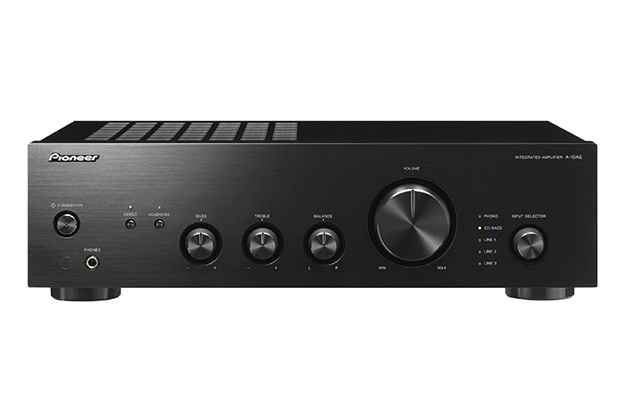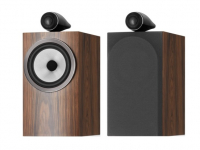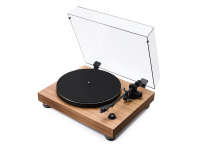Pioneer A10AE – the feature packed amp with punchy sound.
When it comes to hi-fi we just love amplifiers. There’s nothing better than a black box full of magic which turns that weak incoming signal into a dynamic musical performance. We especially love it when they come at a bargain price and surprise us with what they can do. Today we look at the Pioneer A10AE integrated amplifier which aims to muscle in on the territory of some better known hi-fi brands. Join us as we find out what sets this unit apart.
The A10AE is what you might call a traditional integrated amplifier with an array of analogue inputs and a powerful amplification stage under the hood. This includes a phono stage for a turntable and a line out for connecting to additional components. There is also tone controls for bass and treble plus a loudness button on the front panel, perfect for pumping up the bass or dialling down the volume and still enjoying a balanced sound.
The overarching formula Pioneer have chosen for this amplifier is one of a high signal to noise ratio which they’ve labelled Direct Energy Design. What this means to you and me is that the A10AE is devised from the ground up to produce as little distortion to the sound as possible while delivering a great sound. They’ve utilised components such as an isolated power supply and clever internal design to minimise the electrical noise than can lead to distortion through your speakers. In terms of features, the A10AE comes with a great selection for an amp at this price point. There are three line level inputs plus a line out and an integrated phono stage. What this means in practise is the ability to connect not just a record player but also a streaming component potentially even allowing you to broadcast your records around the house.
In addition to the previously mentioned tone controls, the front panel is also home to the traditional input dial, volume dial and a pure direct button. This bypasses the tone controls and sends the signal straight to the amplification stage, again lowering the potential for distortion affecting the music. Whenever we sit down with an entry level amplifier such as this we look for a few signs of quality, first is the feature set, then the build materials and weight and finally the power delivery. Here we were impressed by all three. The A10AE delivers an excellent selection of features for an amp at this budget, while feeling sufficiently weighty in the hands to inspire confidence. Once we hooked up some speakers to see how it brings all that promise together we were delighted. The Pioneer doesn’t disappoint.
We connected the Pioneer into our demo system for those starting their hi-fi journey, and this includes the DALI Oberon 1 speakers and the Yamaha WXC50 streaming component alongside a Project Essential III turntable. This would be a great setup for an aspiring audiophile and provide a wealth of options. It just so happens to test all of the A10AE’s functionality. We connect the turntable first once we have the speakers in place to try out the internal phono stage. It does a fine job of drawing out the quality of this Project turntable and we’d have no qualms matching the two. Certainly an external phono stage would deliver a better sound but this could be upgraded further down the line.
We then hooked up the Yamaha WXC50 and set to playing Tidal over WiFi. The Pioneer did an excellent job of powering the Oberon 1 speakers, delivering bass and mids in abundance while having the finesse to tease out plenty of detail in the highs. Pioneer have succeeded in creating a great starting amplifier with the A10AE. It matches a fine selection of functionality with a surprisingly sprightly audio performance from even demanding speakers. For beginner hi-fi enthusiasts, you could do an awful lot worse for a first amplifier and we can certainly see ourselves recommending building your system around it. To find out if the A10AE could be the amplifier for you, why not pop into your local Richer Sounds store today and try it for yourself?
Click to learn more about the Pioneer A10AE stereo amplifier.
Author: Robert, Brighton store






